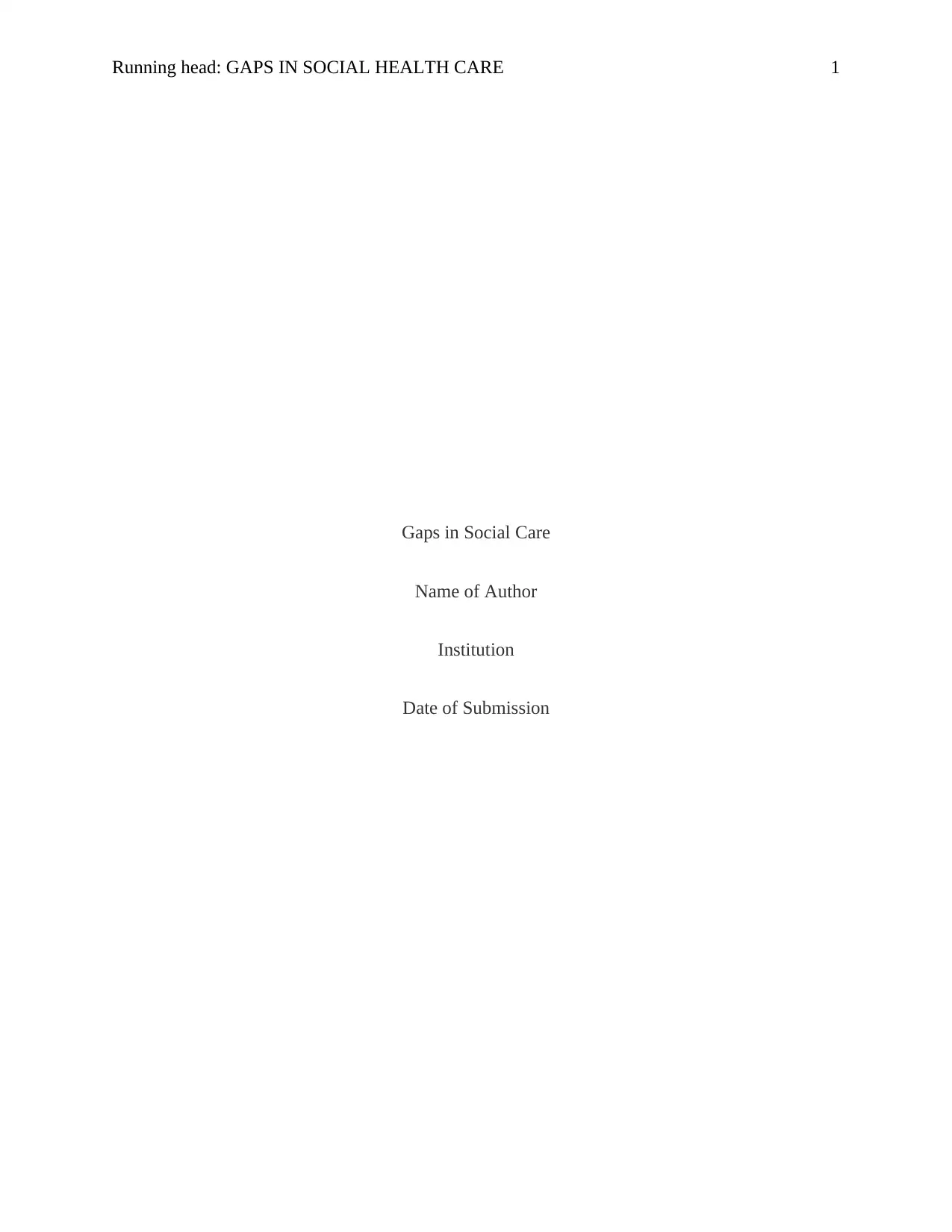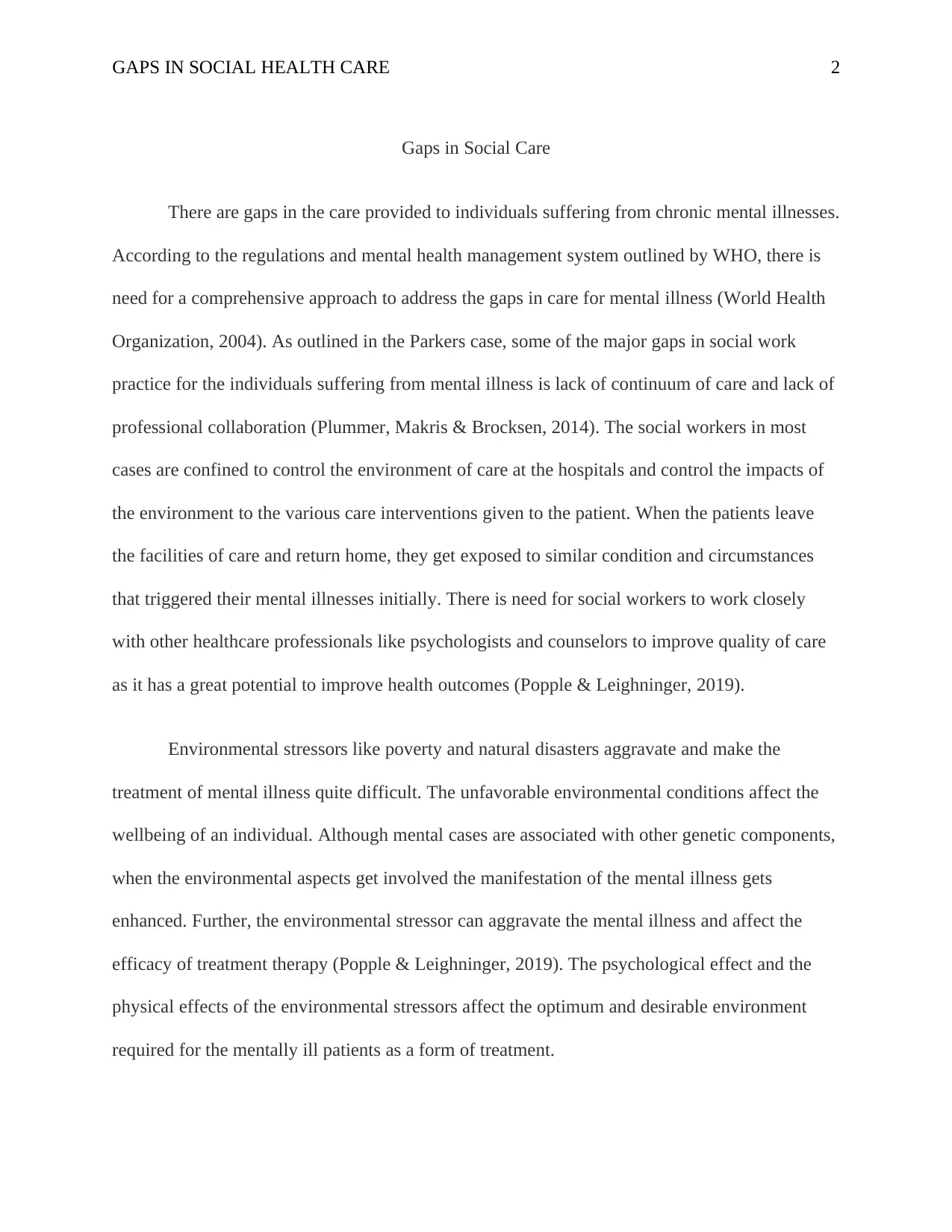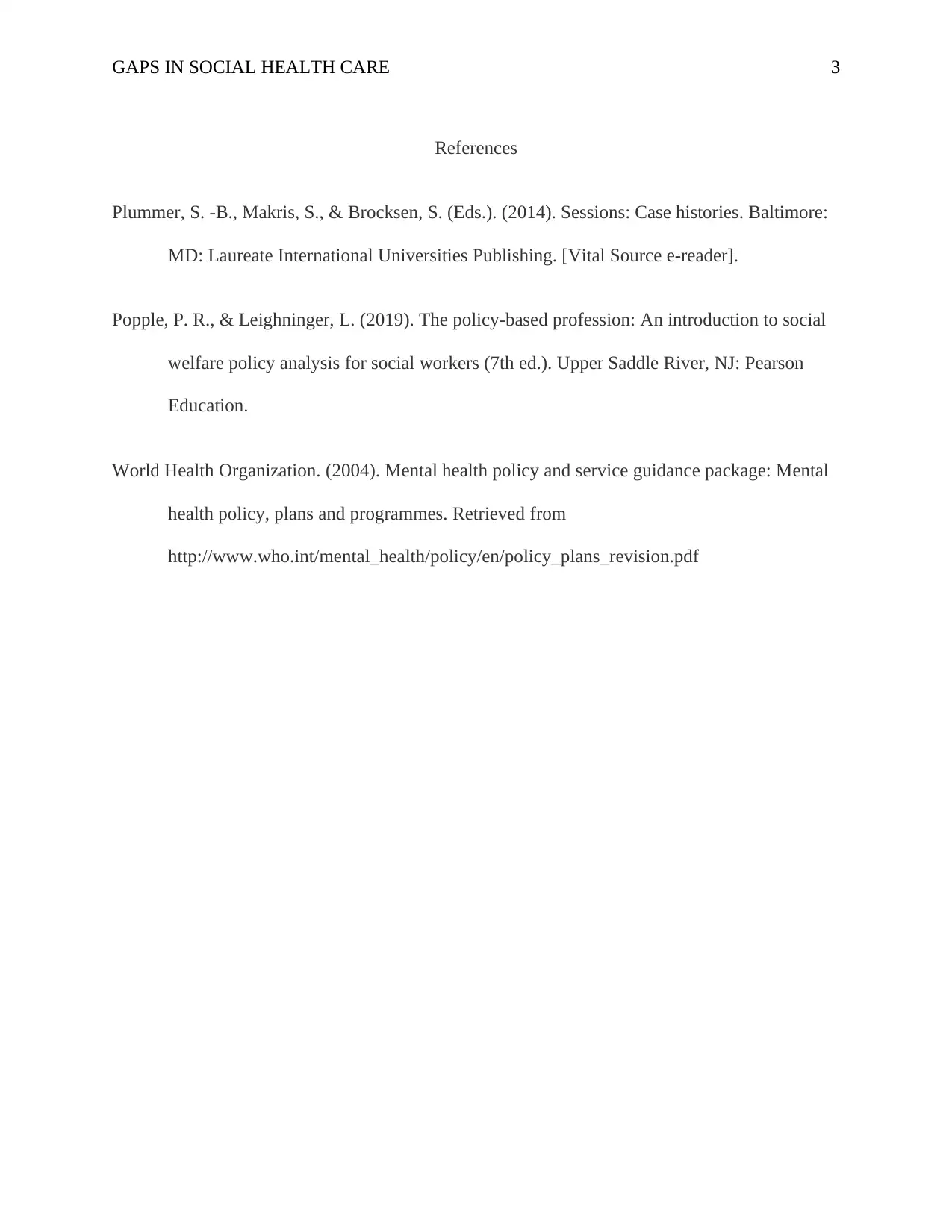An Analysis of Gaps in Social Health Care for Mental Illness Patients
VerifiedAdded on 2023/01/11
|3
|454
|94
Report
AI Summary
This report examines the gaps in social health care, particularly focusing on the care provided to individuals suffering from chronic mental illnesses. The report highlights the need for a comprehensive approach, as outlined by the World Health Organization, and emphasizes the importance of addressing gaps in care. The analysis points out the lack of a continuum of care and the need for better professional collaboration, specifically between social workers, psychologists, and counselors. Furthermore, the report explores how environmental stressors, such as poverty and natural disasters, can exacerbate mental illnesses and hinder treatment efficacy. The psychological and physical effects of these stressors impact the optimal environment needed for patient care. References include key publications that support these arguments.
1 out of 3










![[object Object]](/_next/static/media/star-bottom.7253800d.svg)